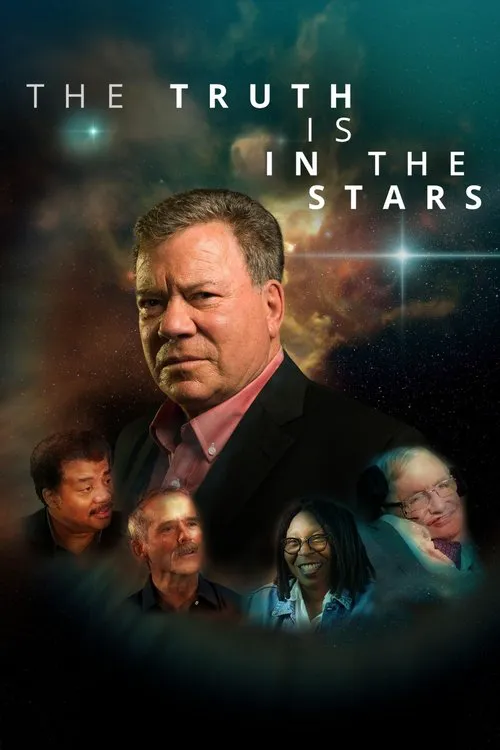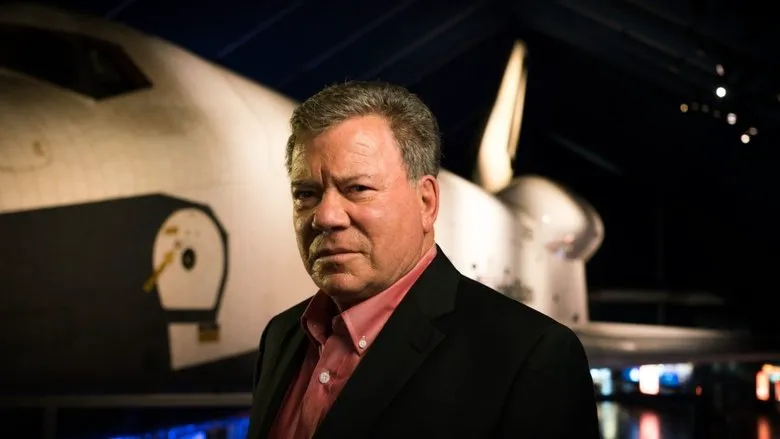The Truth Is in the Stars

Plot
The Truth Is in the Stars offers an intimate look into the profound impact of the iconic television series and film franchise, 'Star Trek,' on modern society. Spanning over five decades, the franchise has been an integral part of numerous individuals' lives, influencing their perspectives on humanity, technology, and the universe at large. Throughout the documentary, William Shatner sits down with notable scientists, innovators, and celebrities, delving into the ways in which 'Star Trek' has inspired them. One of the first guests, Neil deGrasse Tyson, reflects on his childhood fascination with the franchise. As he narrates, it becomes apparent that the optimistic views presented in 'Star Trek' about humanity's potential, technological advancements, and the exploration of space sparked his curiosity about the cosmos. The documentary then shifts its focus to other influential figures, including astrophysicist Dr. Mae Jemison, the first African-American woman to travel in space. A self-proclaimed 'Star Trek' fan, Dr. Jemison shares how the franchise motivated her to pursue a career in science and medicine. Her experiences, which include being part of the NASA Space Shuttle Program, serve as a testament to the lasting impact of 'Star Trek' on inspiring generations of scientists and astronauts. Brian Greene, a renowned theoretical physicist, explains how 'Star Trek' provided a framework for understanding complex scientific concepts in an accessible manner. His enthusiasm is palpable as he reflects on the numerous scientific principles presented in the series, from warp drive to time travel. This emphasis on science and its integration with fiction is a common thread throughout the documentary, as each guest highlights the franchise's ability to make the unknown seem attainable. The film also delves into the realm of politics and social commentary. Guests such as Walter Isaacson and Michael Dorn discuss the series' groundbreaking exploration of civil rights, racism, and war. The 'Star Trek' universe has consistently pushed boundaries, often addressing topics that, at the time, were considered taboo. This willingness to broach difficult subjects has made the franchise an enduring force in shaping societal attitudes and fostering empathy. One of the most poignant aspects of 'The Truth Is in the Stars' comes from a conversation between William Shatner and George Takei. Takei recounts his experiences during World War II, detailing the hardships and injustices he faced as an LGBTQ+ individual. The power of the 'Star Trek' universe to transcend the confines of time and circumstance is strikingly evident in this emotional exchange. As the documentary progresses, it becomes clear that 'Star Trek' has transcended its status as a simple science fiction franchise, becoming an integral part of our shared cultural heritage. The series has inspired countless individuals, fostering a global community bound by a shared curiosity about the universe and our place within it. Ultimately, 'The Truth Is in the Stars' presents a nuanced portrait of a franchise that has inspired, guided, and sometimes challenged its audiences. As each guest shares their unique perspective on how 'Star Trek' has impacted their lives, the film serves as a testament to the power of optimism and the transformative potential of fiction on our collective understanding of the world.
Reviews
Recommendations





